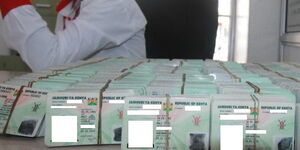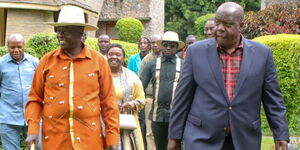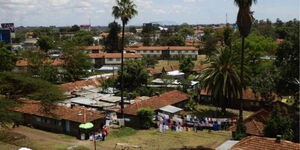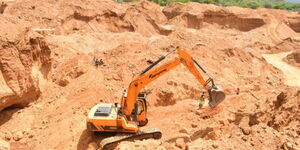EUobserver, an online not-for-profit newspaper founded in Brussels, has exposed how poisonous products banned in the United Kingdom are still on sale in Kenya.
In an exposé published on Tuesday, March 27, the outlet revealed that farmers in Kenya, most of whom rely on subsistence farming, are using pesticides containing Imidacloprid, a product known to be harmful to bees.
The exposé showed that most of the products are manufactured by industries in Germany, China, and India.
Kenya relies on subsistence farming extensively and the use of farming products such as fertiliser and pesticides is important to boost farmers' incomes.
The pressure has seen the importation of farm produce reach 18,000 tonnes every year with few restrictions on quality.
The outlet reported that when products containing Imidacloprid were used in 2008 in Germany, a significant population of bees was killed.
In Kenya, the poisonous pesticides have been in use with some farmers reporting that bee populations were on the decline.
Henry Muriuki, a representative from Kenya Organic Agriculture Network, told the outlet that he had noticed insects were in decline forcing some farmers to pollinate their plants by hand.
Insects, especially bees, are instrumental in farm yields since they facilitate in cross-pollination and fertilisation of flowers for a bigger harvest.
"All they have in mind is money, and I don't have money. But the agrochemical companies have lots of money," he told the outlet.
Since President William Ruto introduced subsidised fertilisers selling at Ksh2,500 instead of Ksh3,500, the sector has faced challenges and infiltration by cartels shortchanging farmers.
At the beginning of March, Africa Uncensored exposed unethical trading practices by a fertiliser manufacturer which passed off the sand from a mining site in Kariandusi to be organic fertiliser.
The firm was accused of packing soil and ferrying it to the National Cereals and Produce Board (NCPB) where it was sold as subsidised fertiliser.
A day later, the Kenya Bureau of Standards (KEBS) recalled all fertiliser brands distributed by the company.
KEBS Managing Director Esther Ngari explained at the time that tests conducted on 59 samples all showed that the products failed to meet the prescribed quality standards.
"As per our mandate, we have communicated this to the manufacturer and have given them strict conditions to maintain the same high-quality standards we expect, read a statement issued by the regulator," she explained.
"Therefore, we have withdrawn the standardisation mark from (company's name withheld) and have asked them to recall all their products in the market. We remain committed to ensuring our standards are met to protect the health and well-being of all Kenyans."












